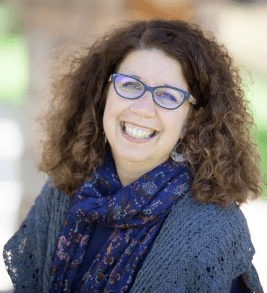By Michelle Van Loon, who blogs at patheos.com/blogs/pilgrimsroadtrip and at michellevanloon.com
The resolution affirmed by 82% of those voting at the recent triennial gathering of the Evangelical Lutheran Church in America (ELCA) calling for an end of all American aid to Israel reminded me once again that to be a Jewish follower of Jesus sometimes requires thick skin.
Writer Elliott Abrams sums up the language in the resolution:
A time bound agreement– so facts on the ground, for example the strength of Hamas or even ISIS in the Palestinian territories would be irrelevant. Stop all construction in East Jerusalem–well, not really; just construction by Jews. “Enable” an independent Palestinian state, as if the only worry about such a state, and its only problems, come from Israel–not poverty, terrorism, corruption, and repression, for example. End military aid to Israel, regardless of the threats it faces from Hamas, Hezbollah, ISIS, Iran, and other enemies of Israel’s and ours.
And of course, these standards and these requirements apply to one single country: Israel. In a world awash in repression and human rights violations, only Israel.
This latest resolution joins a cluster of Christian denominations that have linked arms with the anti-Israel Boycott, Divest, and Sanction (BDS) movement. The BDS movement seeks to apply economic pressure on the State of Israel via boycotts of Israeli-made products, divestiture of any financial holdings that could benefit the country, and branding the country as a rogue, human-rights violating state. While the United Methodist Church recently voted to distance itself from this movement, other BDS-supporting denominations have made it their mission to censure Israel in hopes of pushing the country toward their vision for justice in the region.
In my forty-plus years of following Jesus the Jewish Messiah, I’ve run into people from denominations like ELCA who insist Israel is a rogue state. “We like Jewish people,” they’ll tell me. “We just don’t like modern Israel’s politics, and our ears are tuned to the suffering of the Palestinian people.” At best, they’re telling me they may like the idea of Jewish people (“Some of my best friends are Jewish”), but they don’t particularly want Jewish people to live in Israel in any of the bounded land areas on the map since 1948. In its more noxious form, some of these people are saying they really don’t care much for Jews at all – no matter where they live. Supercessionism (simply, the belief that the church has replaced Israel) forms their understanding of and relationship with the Jewish people. As about half the world’s Jewish population now lives in the State of Israel, supercessionism is more than just an abstract idea. It becomes the foundation for decisions like the recent ELCA resolution.
I’ve certainly had my share of awkward moments with those on the opposite end of the spectrum, Christian Zionists, mostly via hyper-idealized populist pronouncements about Jewish people and/or Israel. At one time, those with this position were a dominant voice in Evangelicalism – an Evangelicalism that has at times informed some of the way U.S. foreign policy plays out in the Middle East. There has been a maturing of this idealistic zeal in some quarters. At the same time, there’s been a hard pendulum swing away from wholesale embrace of this position in other quarters, leading some Evangelicals to align with those who would brand Israel in wholesale negative terms.
I can tell you that some occasional awkwardness from those in the Christian Zionist camp is far easier for me to deal with than the barely-disguised anti-Semitism of those who’ve chosen to demonize Israel via coolly-worded resolutions and boycotts. While both groups stir suspicion among the mainstream Jewish community, the actions of the latter are far more worrisome and carry the potential for far more devastating consequences to a people group comprising about 0.2% of the world’s population.
I write these words as a Jewish follower of the Jewish Jesus, recognizing that I am an object of scorn and suspicion to much of the Jewish community. But I am also writing them as someone who has an equal place at the table with Gentiles who claim the name of Jesus, including Christian Zionists and Supercessionists. There are times, like when I read about the ELCA resolution, I am reminded how difficult it can be to stay at that table when it feels in the marrow of my bones that it’s doesn’t always feel safe to remain in my seat. But the One who invited me to the table in the first place keeps me there. I’m grateful to know that my place at that table doesn’t mean I am to use my best Emily Post table manners and remain silent when a table mate says or does something hurtful or rude.
















